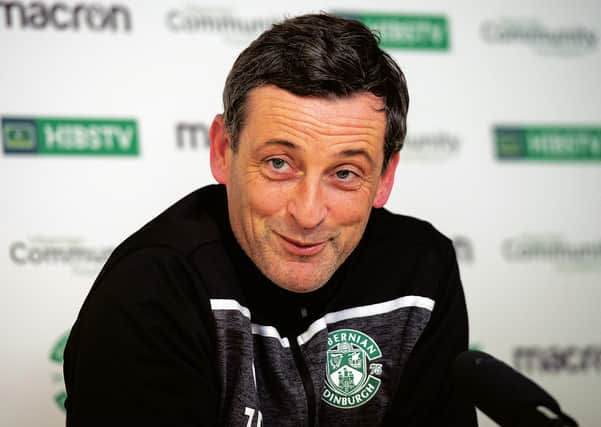Aidan Smith: Hibs look like they’ve started to believe their own hype


Without wishing ill on the rest of civilisation – although for football fans, often nothing and no one is more important than the state of their club – there must have been a few Hibernian supporters right after last week’s derby who were hoping the coronavirus would force the all-Edinburgh Scottish Cup semi-final behind closed doors, so sparing them from having to attend.
They couldn’t help gloating about Hearts’ relegation worries, songs which seemed ill-judged the first time their rivals won a second ball (and every one after that). You’d think Hibbies might have learned from a few seasons ago when they brought balloons and streamers to a derby against the doomed Jambos, only to lose the game and join them in the Championship a few weeks later.
Advertisement
Hide AdAdvertisement
Hide AdMaybe the Hibs supporters took their confidence from manager Jack Ross, pictured, who, asked pre-match if he had a plan for dealing with Hearts, said: “We put more emphasis on what we can do.” He suggested this approach had been increased in legitimacy because of Hibs’ good form, claiming it had been “relentless”. Really? The progress in the cup has come at the expense of lower- and non-league teams, while Hibs struggled to a draw at home against St Mirren last month and were pretty dismal against Livingston just ten days previously. That hardly adds up to relentless.
Hibs on Tuesday looked like they’d started to believe their own hype. As much as the Easter Road aesthetes have moaned previously about Hearts fluking results against their favourites by dint of brute strength, they could have no complaints this time as the better footballing team won. Result? Hearts are not as bad as their shocking season would suggest. And Hibs are not as good as beating the mighty BSC Glasgow led some to believe.
